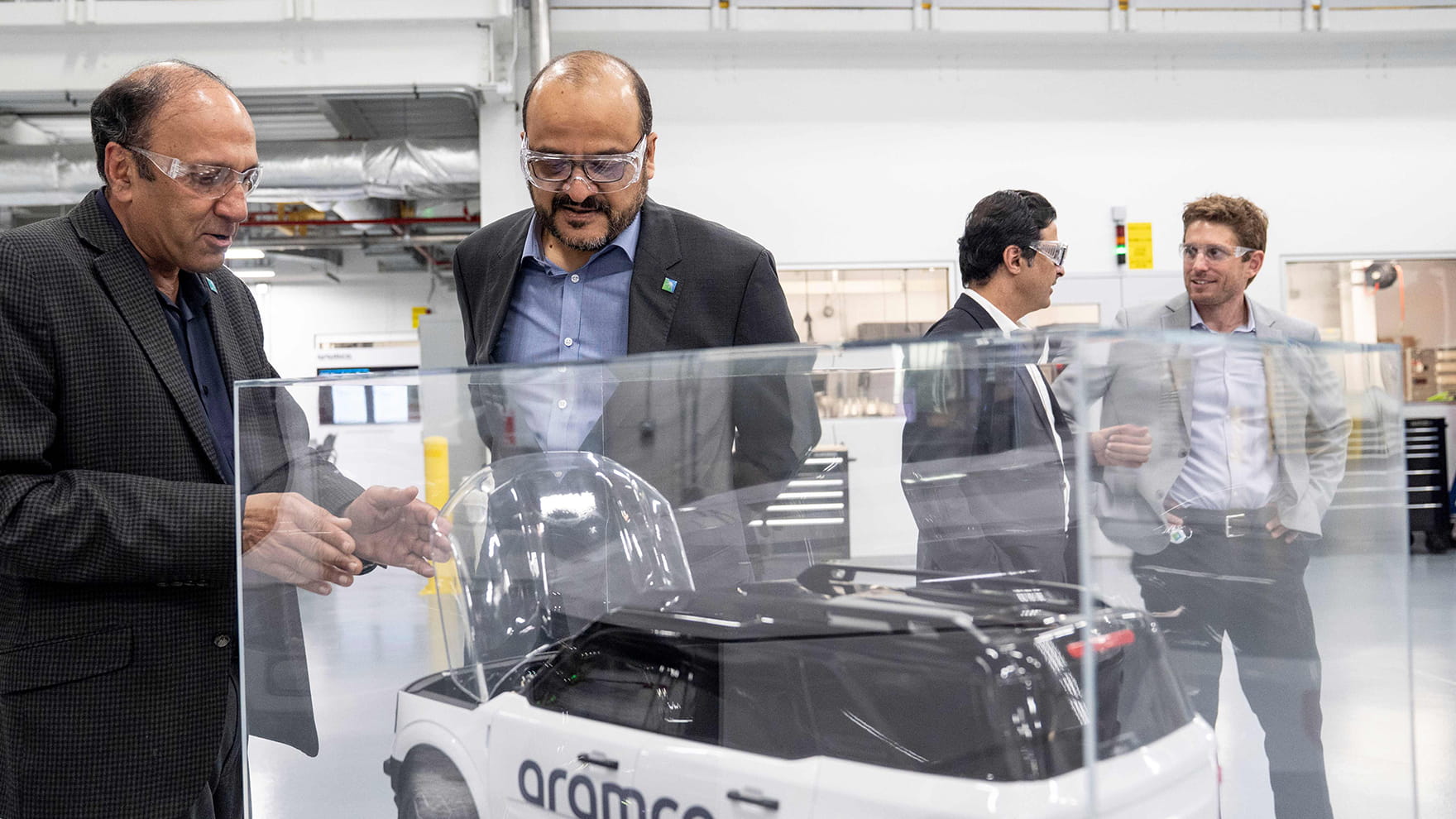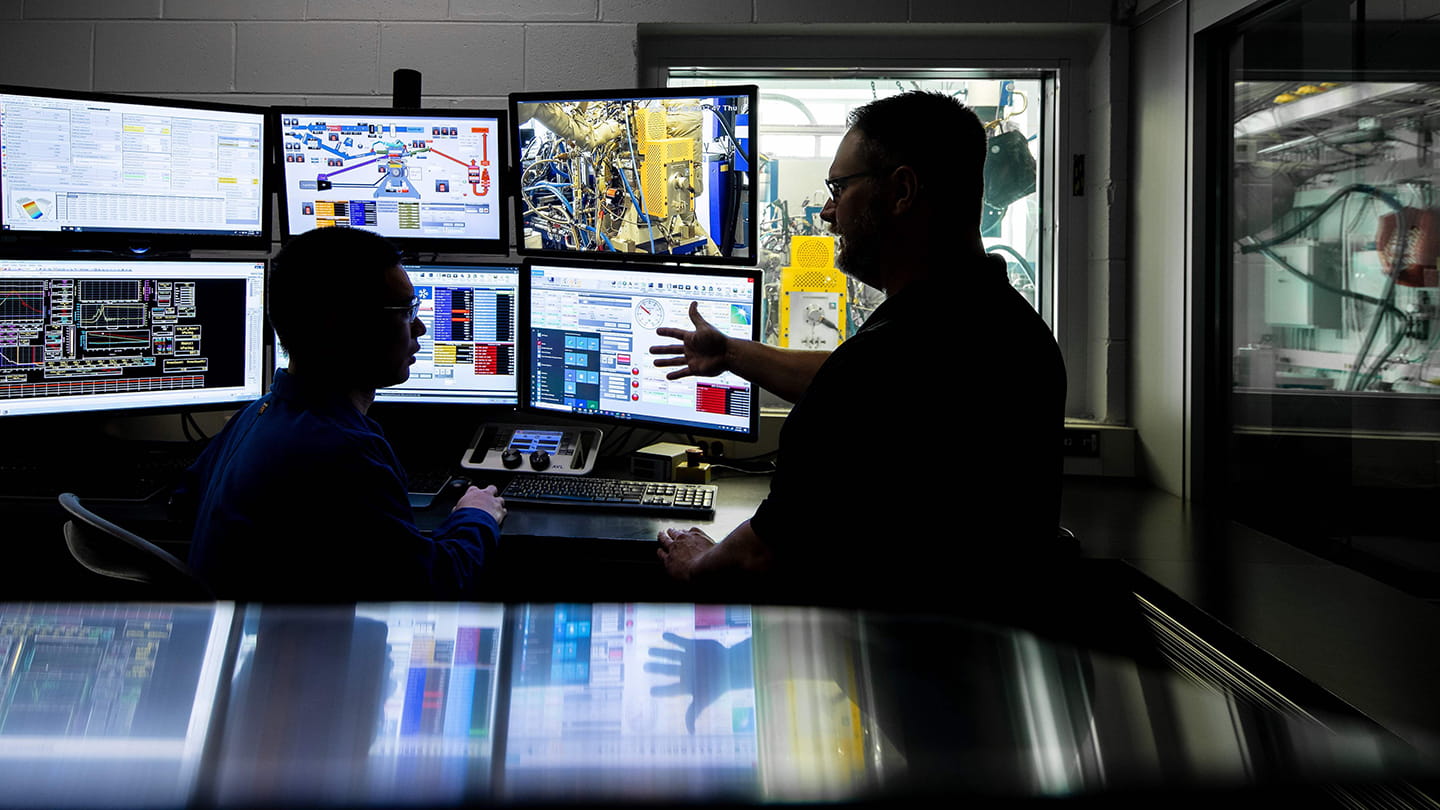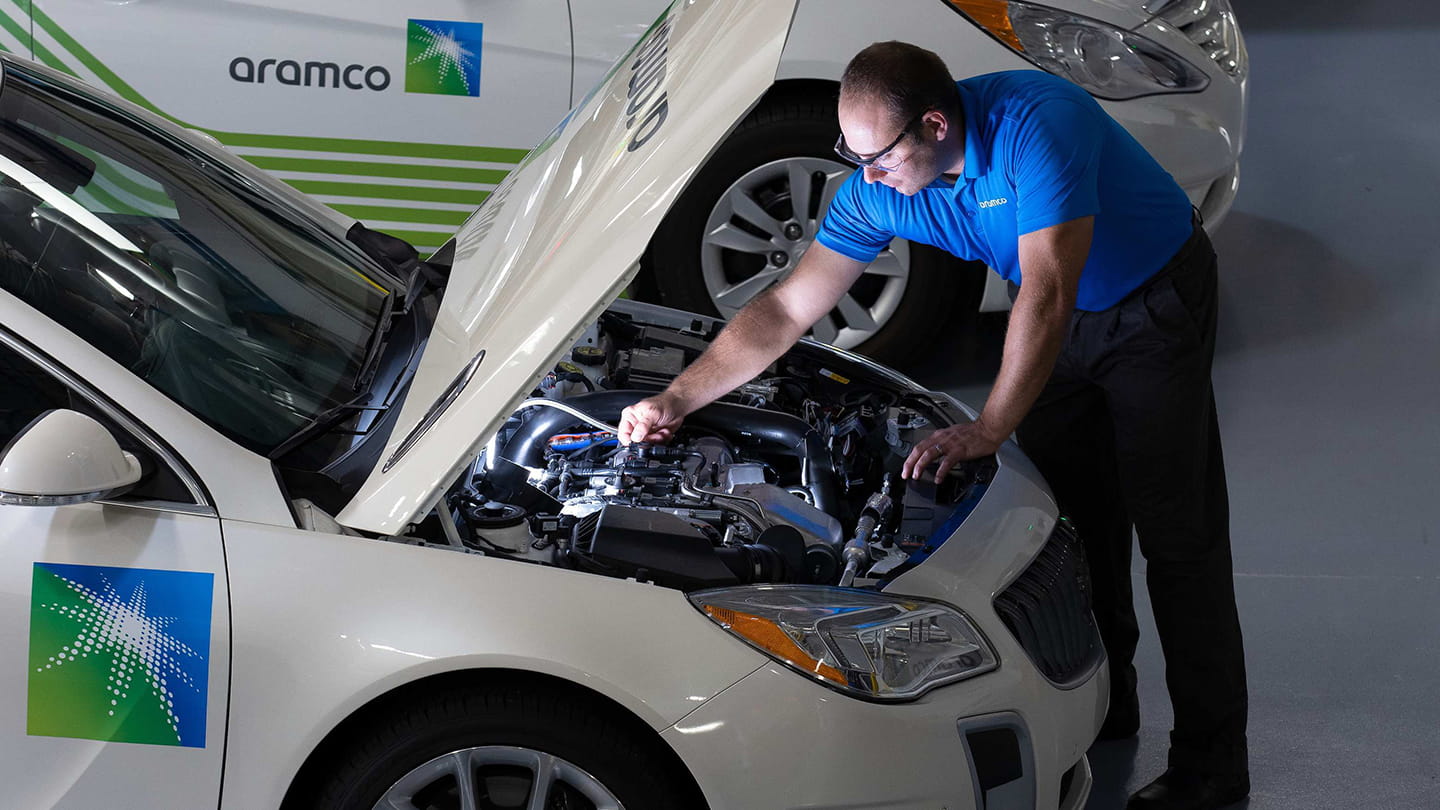Detroit R&D celebrates 10 years as F1 U.S. Grand Prix returns to U.S.

Ahmad O. Al Khowaiter tours Aramco’s U.S. Research Center in Detroit (Novi) earlier this year.
Formula 1 racing, with its popularity and visibility, provides the perfect platform for Aramco to transition into a conversation about engines and fuels and how a global sponsorship like this allows us to advance our engineering expertise and lower-carbon fuel ambitions.
Collaborating with partners, such as F1 and major original equipment manufacturers (OEMs) to advance lower-carbon fuel technologies is leading to potential long-term reduction pathways.
With the unveiling of Aston Martin’s new car design at the Circuit of the Americas track in Austin, Texas, Oct. 17-19, Aramco has become the supplier of lower-carbon fuel to the Aston Martin Aramco F1™ Team for the 2026 season. In addition, as the exclusive supplier of lower-carbon fuels to all Formula 2 and Formula 3 cars, Aramco and the Aston Martin team are testing these fuels on the racetrack to learn how they perform.

The center remains a hub of experimentation and cross-disciplinary collaboration. Its capabilities stretch from single-cylinder research to commercial-scale engines to modes of other transport such as marine and aviation.
How does this impact the average consumer? Learnings from this partnership support Aramco’s active R&D with lower carbon fuels and novel engine and powertrain designs for passenger cars.
The global energy transition is likely to be driven, in part, by a shift in the production of fuels. Lower-carbon fuels can be designed to be chemically like conventional fuels on the market such as gasoline or diesel.
Aramco is developing pragmatic solutions and proven technologies for its lower-carbon fuels portfolio and working with engine manufactures on a range of novel engine and powertrain designs.
Aramco’s U.S. Research Center - Detroit has long been a key contributor and driver for innovation in engines and fuels. For a decade, the state-of-the-art facility and its current 46-person staff have been advancing the future of internal combustion engines and cleaner transportation solutions.
Ten years of breakthroughs
Inaugurated in November 2015, the R&D center is the epicenter of engine research in the U.S. for the company. Located in the suburb of Novi, it remains a hub of experimentation and cross-disciplinary collaboration. Its capabilities stretch from single-cylinder research to commercial-scale engines to modes of other transport such as marine and aviation.
Partnerships with automakers, academia, research institutions, and national labs are helping to accelerate that development. However, it is the people staffing the center that have the heartbeat of the auto industry and are passionate about making an impact.
“The energy, creativity, and resilience of the Detroit staff has made significant contributions to Aramco’s engines and fuels program,” said Mohammad Alaskar, director, Aramco Americas R&D program. He points to projects such as the Turbulent Jet Controlled Compression Ignition (TJCCI) and hydrogen-powered engine designs as well as work with rapid catalyst heating technology.

Aramco is developing pragmatic solutions and proven technologies for its lower-carbon fuels portfolio and working with engine manufactures on a range of novel engine and powertrain designs.
Detroit’s work extends beyond passenger cars and commercial vehicles to even deploying carbon capture technology on ships. With Detroit’s help, Aramco has made great strides in developing industry leading low-cost and highly compact carbon capture systems.
Shaping the future of sustainable mobility is complex. It is not only about meeting the technology challenges but also considering factors such as changing marketplace dynamics, government regulations, electrification, AI, and others.
Aramco has been accelerating its fuel-efficient engine technologies and growing its R&D portfolio with sustainability-focused initiatives. The motorsport connection with F1 is a natural choice for a company deeply rooted in innovation and engineering excellence.
Fueling the Detroit (Novi) research center
- Eight teams address new technologies and approaches toward sustainable mobility.
- Computational Modeling
- Propulsion Technology Development
- Strategic Transport Analysis
- Transport Technology Integration on
- Planning & Resource Management
- Climate and Sustainability Group
- Transport Technology Development
- Technology Outlook



